|
|
|
Tack
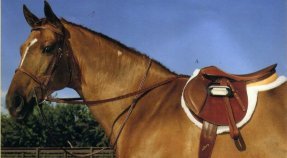
Just What is tack? Tack is
what you use to ride your horse. Your
saddle and bridle are tack. But there are many diffrent kinds of
tack. How can you be sure which one to use for your horse? well
First the right saddle. There are many diffrent types of saddles.
But to choose your saddle u need to figure out what style of
riding you do. Here are some examples of some saddles.
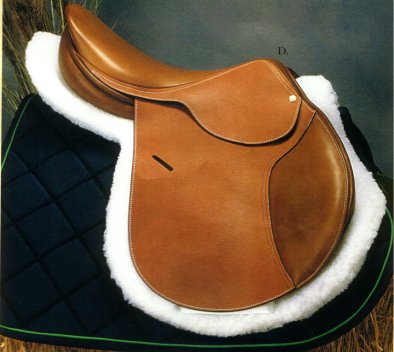
This is a close contact Jumping saddle. In this saddle the flaps
are more foward cut then the general purpose saddle. This
allows the rider to carry his legs closer to the saddle and keep
his seat more secure even if you are riding with a short stirrup.
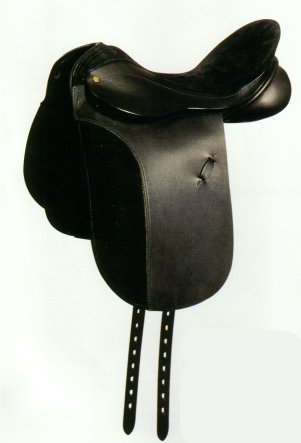
This is a Dressage saddle. The flaps are longer on this saddle
and
are straighter. This allows the rider to keep his egs in an
extended
position and close to the horses body. Its designed for schooling
horses on the flat rather then for over jumps.
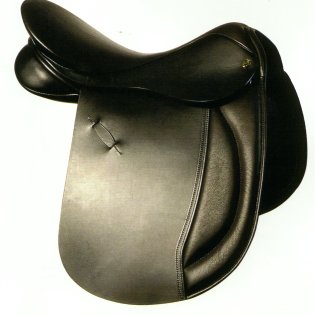
This is a working hunter saddle. It has a nice deep seat and has
padded knee rolls which give you more security when you are
jumping.
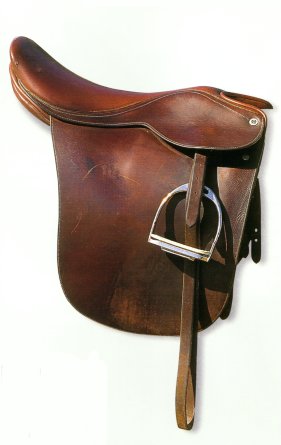
The Saddlebred saddle enables the rider to
sit as
far back in the saddle as possible. Showing this
saddle will help to enhance the conformation of
the saddle bred horse. It also features a cut back
pommel.
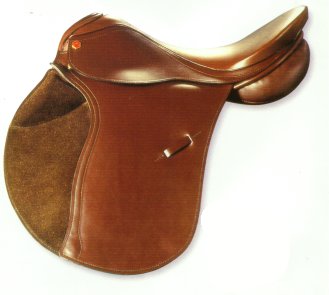
The selecta saddle is a multi purpose saddle
It has
removable knee pads which allows the saddle
to be
adapted to all kinds of english riding.
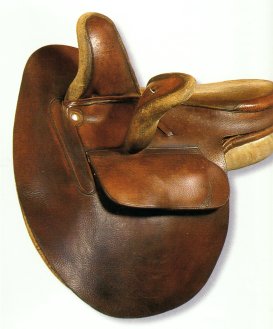
The sadie saddle was first developed in the
14th
century. Allows the rider to carry both legs
on the
near side of the horse. The seat is flat
with a suede
cover for extra grip.
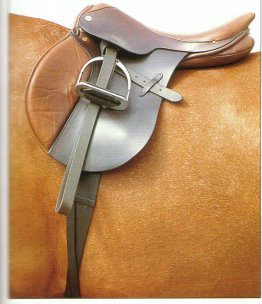
The event saddle is very similar in style to
a general purpose
saddle. It can be used for all three types of events in a three
day event. Most riders still will use a Dressage saddle for the
dressage phase of the competition.
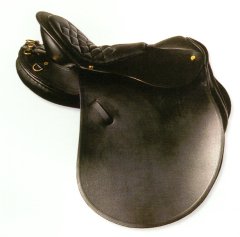
The endurance saddle is designed for long
distance riding.
The seat has extra padding and the panels extra width. This
spreds the riders weight over a greater area of the horses back.
Additional D rings are also attached to the saddle. This saddle
has the comfort of both the horse and rider in mind.
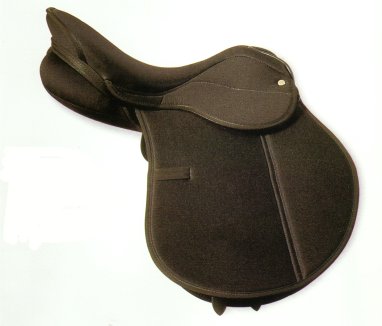
The synthetic general purpose saddle is
lighter in weight then the
leather type. This saddle is perfectly
adequete for jumping. The
only real diffrence is, its cheaper lighter
and eaiser to clean.
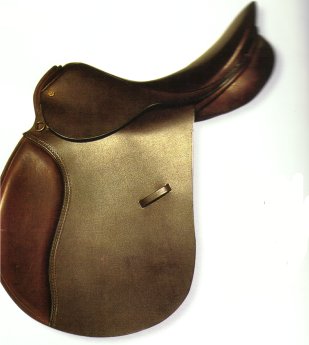
The leather general purpose saddle can be
used from pleasure
riding to jumping. It makes a great choice
for non competitive
riding at all levels.
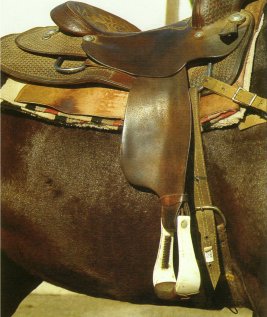
The australian stock saddle is built for
comfort and duribility.
The weight distributing properties of this
saddle mean that
slightly modified versions can be used also
for endurance.
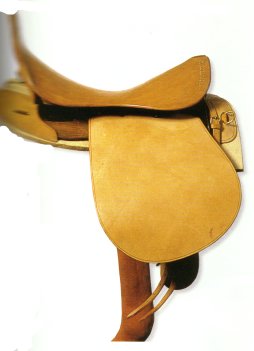
The calvary saddle is constructed around a
wood tree. It isthe
traditional saddle of the armed forces. It
has good strength and
duribility.
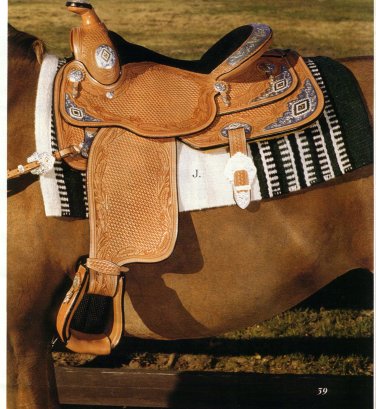
The Western show saddle always has lot of
engraved silver on it
Has sanata show billets and a full sterling
silver overlay cantle.
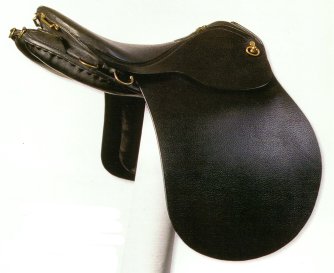
The military fan saddle is designed to
evenly distribute the riders
weight evenly in the saddle. This becomes very important
especially
when the ridden horse is motienless for long periods of time.
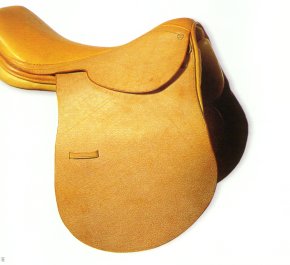
The Polo saddle has a flat seat extended
flaps and no knee rolls.
All which allow the rider freedom of movement which is crucial
when striking the ball.
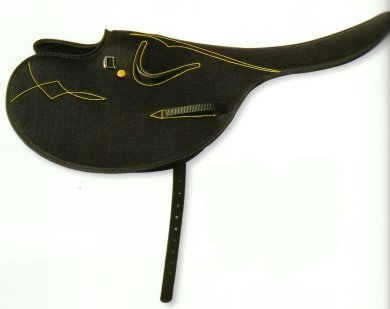
The racing saddle has a very flat seat and
short stirrup leathers
The jockey rides crouched over the saddle
with his head tucked in
for a more streamline position. They can
weigh as little as 10 Oz.
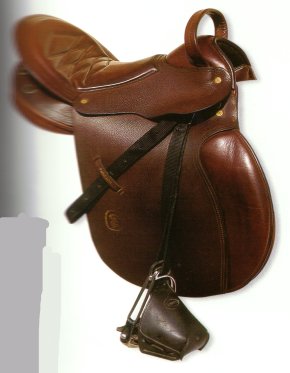
The RDA saddle is designed for the
physically and mentally
disabled riders. The loop fitted at the front of the saddle gives
the rider something to hold onto without needing to grip and
pull the reins tightly.
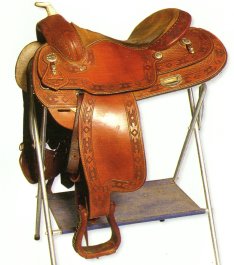
The reining saddle has a high front and
prevents the rider from
being thrown fowards and out of the saddle. This is important
when reining horses perform the traditional sliding stop.
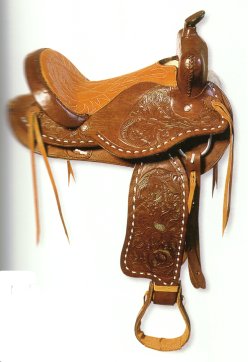
The western pleasure saddle has a nice deep
seat and is secure and
comfortable. they have only one cinch attachment, and are ideal
for trail riding.
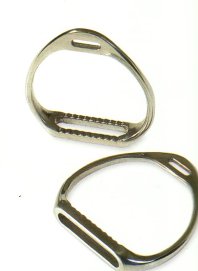
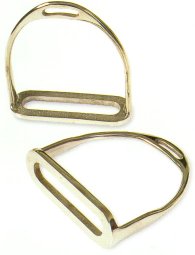
Cradel bottomed racing stirrups
Prussian open side stirrups
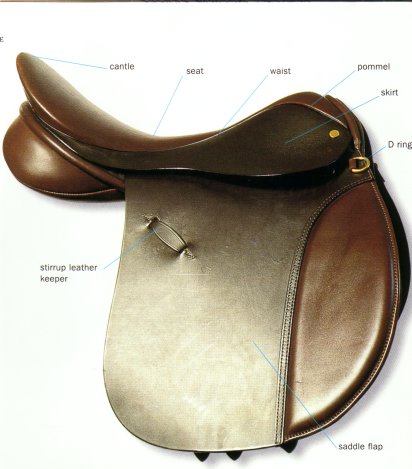
Points of the English Saddle

Points Under the english saddle
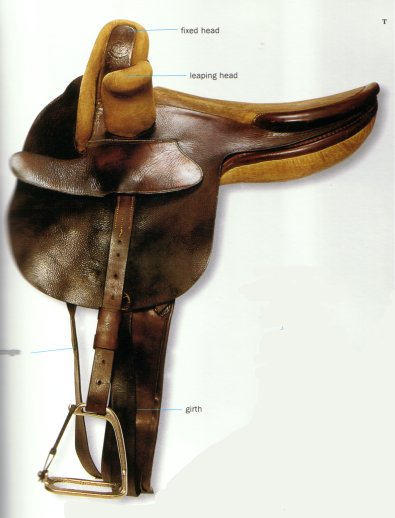
Points of the Side Saddle
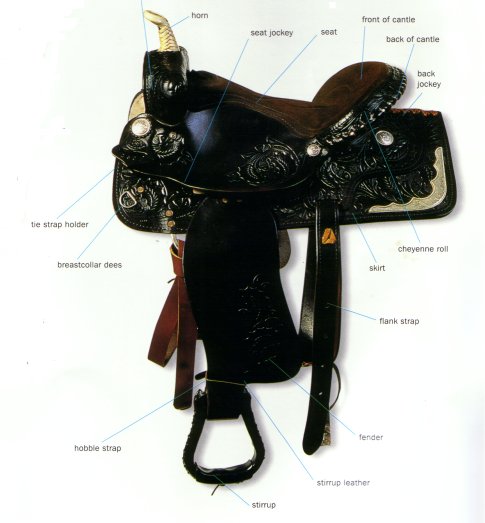
Points of the western Saddle
SADDLING UP!
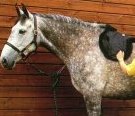 Place a
saddle cloth on the horses back. making sure it is
Place a
saddle cloth on the horses back. making sure it is
positioned up high on the withers.
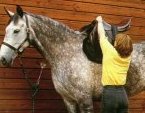 Place
the saddle on the horses back over the saddle pad
Place
the saddle on the horses back over the saddle pad
Ensure both flaps are flat against the horses sides.
 Pull the
saddle cloth up into the gullet of the saddle
Pull the
saddle cloth up into the gullet of the saddle
so that it is clear of the horses withers.
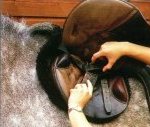 saddle
pad usually have straps to anchor them to the saddle
saddle
pad usually have straps to anchor them to the saddle
toprevent slipping. Attach the top straps to the billets.
 Buckle
the gitrh to the off side of the saddle first and pass
Buckle
the gitrh to the off side of the saddle first and pass
it through the other side.
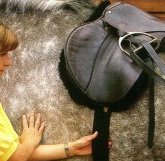 Tighten
the girth gradually should be eaquel on both
Tighten
the girth gradually should be eaquel on both
sides.
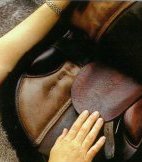 once the
girth is tightened slide down the buckle guard
once the
girth is tightened slide down the buckle guard
over the girth buckles. Slide your hand round the horses
belly and under the girth to ensure there are no wrinkles
in the horses skin.
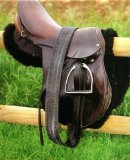 click here to go to
some more tack!
click here to go to
some more tack!